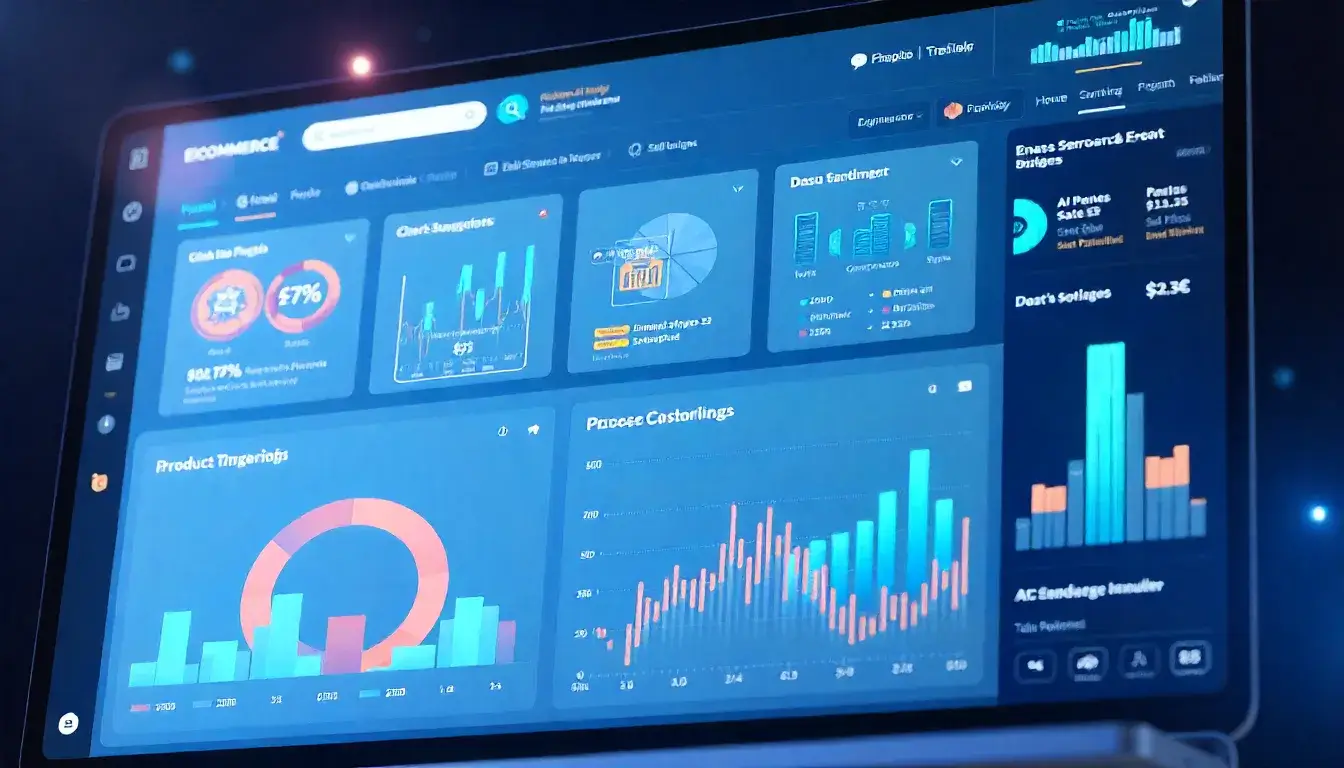Boosting eCommerce Growth with OpenAI: Case Studies & Strategies

Ecommerce businesses in 2025 face both massive opportunities and challenges. With rising customer expectations, global competition, and shifting digital landscapes, finding growth strategies that actually work is critical.
OpenAI-powered tools are helping ecommerce brands optimize their sales funnels, automate operations, and deliver hyper-personalized shopping experiences.
This article explores how OpenAI drives ecommerce growth through real-world case studies and actionable strategies. From AI-driven product recommendations to customer support automation, you’ll learn how leading brands are using OpenAI to stay ahead — and how you can too.
Introduction: Why Ecommerce Needs AI Now
Ecommerce is no longer just about having an online storefront. Consumers want:
- Faster deliveries
- Personalized recommendations
- Smarter customer support
- Seamless checkout experiences
The sheer volume of data generated by ecommerce businesses makes it nearly impossible for human teams to handle everything manually. This is where OpenAI comes into play. By applying machine learning, natural language processing (NLP), and automation, OpenAI offers tools that streamline operations, increase conversions, and enhance customer experience.
In this blog, we will cover:
- Why OpenAI matters in ecommerce
- Case studies of ecommerce companies using OpenAI
- Actionable strategies you can implement
- Future trends shaping ecommerce growth with AI
The Role of OpenAI in Ecommerce
OpenAI provides advanced AI technologies that ecommerce businesses can leverage in areas such as:
- Customer Support Automation
- Chatbots powered by GPT models can handle thousands of queries at scale.
- Reduces reliance on large customer service teams.
- Personalized Shopping Experiences
- AI analyzes customer behavior and recommends products in real-time.
- Increases basket size and repeat purchases.
- Content Generation
- AI writes SEO product descriptions, blog posts, and email campaigns.
- Saves time while maintaining high-quality marketing material.
- Inventory and Supply Chain Optimization
- Predictive analytics reduce overstock and stockouts.
- AI forecasts demand with higher accuracy.
- Conversion Rate Optimization (CRO)
- AI A/B tests landing pages, CTAs, and email campaigns.
- Improves ROI on ad spend.
Case Studies: OpenAI in Action for Ecommerce Growth
Case Study 1: Shopify Store Scaling Sales with AI Chatbots
A mid-sized Shopify apparel store integrated an OpenAI-powered chatbot for customer support. The result:
- 65% of queries resolved automatically
- 30% increase in customer satisfaction scores
- Reduced human agent costs by 40%
Case Study 2: Electronics Brand Using AI for Product Recommendations
An electronics ecommerce brand used OpenAI’s recommendation algorithms to personalize product suggestions:
- Conversion rates improved by 18%
- Average order value increased by 12%
- Return rates dropped as customers bought more relevant products
Case Study 3: AI-Powered Marketing Campaigns
A skincare ecommerce company used AI-generated content for email campaigns and social media:
- Campaign creation time reduced by 70%
- Click-through rates increased by 25%
- SEO rankings improved with AI-written blogs
Case Study 4: Global Marketplace Supply Chain Optimization
A cross-border marketplace applied AI demand forecasting:
- Reduced warehouse storage costs by 22%
- Minimized product shortages
- Increased delivery efficiency by 15%
Actionable Strategies to Boost Ecommerce Growth with OpenAI
1. Implement AI-Powered Chatbots
- Deploy AI chatbots on product pages and checkout.
- Train them with your FAQs and order database.
- Benefit: Immediate response time and reduced cart abandonment.
2. Use AI for Dynamic Pricing
- Analyze competitor pricing in real time.
- Adjust prices automatically based on demand and inventory.
- Benefit: Maximizes profits while staying competitive.
3. Personalize Email Marketing with AI
- Segment customers based on behavior and preferences.
- Generate tailored subject lines and product offers.
- Benefit: Boosts open rates and sales.
4. Optimize SEO Content with AI
- Use OpenAI to generate long-form blogs optimized for Google Discover.
- Keep content fresh with AI-driven updates.
- Benefit: Higher rankings and organic traffic growth.
5. Leverage AI Analytics for Smarter Decision-Making
- Apply AI-driven dashboards to track KPIs in real-time.
- Identify underperforming products and winning trends.
- Benefit: Data-backed growth decisions.
Challenges of Using OpenAI in Ecommerce
While the opportunities are huge, ecommerce companies must also address challenges:
- Data Privacy: Customer data must be handled responsibly.
- AI Bias: Ensure fairness in recommendations and pricing.
- Implementation Costs: Upfront investment in AI systems may be high.
- Integration Complexity: Requires alignment with existing platforms like Shopify, WooCommerce, or Magento.
Future of Ecommerce with OpenAI
By 2025 and beyond, AI is expected to:
- Create virtual shopping assistants that feel human-like.
- Enable voice-driven ecommerce experiences.
- Expand into AI-generated video ads and immersive AR/VR shopping.
- Power predictive delivery systems that estimate shipping times with near-perfect accuracy.
Conclusion
Ecommerce is evolving rapidly, and businesses that embrace AI will gain a significant competitive edge. OpenAI offers ecommerce brands a toolkit to automate operations, personalize customer journeys, and increase profitability.
By studying real-world case studies and applying actionable AI strategies, you can position your ecommerce business for growth in 2025 and beyond.
If you’re running an online store, the time to start leveraging OpenAI is now. The sooner you adopt these tools, the faster you’ll scale in today’s competitive market.
Key Takeaways
- OpenAI enhances ecommerce by powering chatbots, personalization, and predictive analytics.
- Case studies prove measurable improvements in conversion rates, ROI, and customer experience.
- Ecommerce businesses should adopt AI for marketing, customer support, and supply chain optimization.
- Future trends include virtual AI shopping assistants and immersive ecommerce experiences.
Related Posts
How OpenAI Is Transforming eCommerce: Smarter Stores in 2025 OpenAI for eCommerce: Practical Use Cases to Boost Sales


Leave a comment